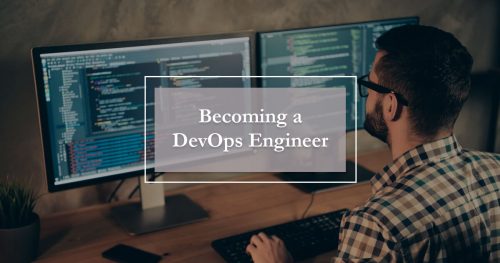Everything to Know About a Career as a DevOps Engineer

The title “DevOps Engineer” is one of the recent additions to a growing list of DevOps job titles. But this one is definitely here to stay considering the responsibilities entrusted to this role. Especially when it comes to transforming organizations to become DevOps environments.
“So, What’s the Job Description for a DevOps Engineer?”
As a DevOps Engineer, you’re expected to have an understanding of both engineering and coding. Through the following duties, you need to increase productivity in the workplace and help address complex issues:
- Analyzing current technology to provide improvement and scalability recommendations
- Establishing milestones for each department and developing processes for collaboration
- Providing detailed specifications for proposed solutions and assisting in the creation of their demos
- Providing goals for projects and ensuring timely execution
- Mentoring and training other engineers and contributing to improving processes
“And How Much Do DevOps Engineers Make?”
A DevOps engineer’s salary is quite lucrative. For instance, in the US, professionals can earn USD 76,000 to 141,000 annually. The average is $103,213 based on Glassdoor submissions.
Your salary will mainly depend on your years of experience. According to PayScale, a DevOps Engineer with 1-4 years of experience can earn $87,469 annually.
A mid-career professional with 5-9 years can earn around $103,867 per year on average. Meanwhile, experts with 10+ years can earn from $122,702 yearly.
“So What Comes After I Become a DevOps Engineer?”
Once you become a DevOps engineer, you can advance to Senior DevOps Engineer and later Lead DevOps Engineer.
Also known as Mid-level DevOps Engineer, Senior DevOps Engineer juggles several responsibilities including:
- Collaborating with management to identify requirements of software solutions
- Providing their expertise on information system options and risk
- Mentoring junior software developers and grooming them for DevOps jobs
- Installing and configuring solutions
- Interpreting test stage data
- Resolving product implementation errors and overseeing maintenance procedures
- Documenting and monitoring performance metrics
After that comes Lead DevOps Engineer. As part of this job, you will be required to perform duties including:
- Managing and developing continuous integration and deployment solutions
- Creating new technology infrastructure
- Maintaining configuration management and list of automation tools
- Guiding junior DevOps engineers and other engineering teams
- Managing the architecture and technical leaderships of DevOps infrastructure
- Identifying and implementing data storage schemas with performance in mind
- Designing, building, and optimizing automation systems
- Conducting research, testing, and implementing DevOps best practices
“How Can I Have a Great DevOps Career?”
To stand out from hundreds of thousands of DevOps professionals worldwide, you need to complement your knowledge with a few things. Here are four must-haves to have a great career.
1) Soft Skills
Complement your technical competence with soft skills to truly succeed in this field. That way, you can truly implement the agile and collaborative skills DevOps taught you.
Soft skills will also help you work effectively with colleagues and stakeholders. You’ll also be able to exhibit empathy, integrity, and resilience. These three are highly valuable for DevOps professionals.
2) Personal Brand
While this isn’t an easy feat, you need to have a personal brand in the DevOps community to stand out. You can do this by attending meetups, getting involved in open-source projects, or being part of speaking events.
The first and possibly easiest step towards making your name in this industry is to leverage LinkedIn. You can highlight your activities and write posts or short articles to showcase your expertise.
3) Knowledge on DevOps Automation Tools
Mastering automation tools and practices will make you a star DevOps engineer. Not only will these save you time otherwise spent on manual work, you’ll help the organization work faster and smarter.
If nothing else, this skill will make your organization happy to pay more to ensure your long-term involvement in their DevOps environment.
4) DevOps Certifications
Keeping the best for last, DevOps certifications will advance your career in more ways than one. For starters, they prove that you possess the skills you claim to have.
By opting for tool-specific certifications such as AWS, you also indicate you have the knowledge to implement these technologies.
If you need help finding the right DevOps certification, make sure to read this blog.
“That’s All from My End”
It was a pleasure helping you understand the role of a DevOps engineer. You can check other blogs in this category if you wish to learn about other jobs and tips.
And if you need us to guide you on DevOps certifications, don’t hesitate to get in touch with our Training Advisors. They’ll help you choose the right credential to boost your career.




